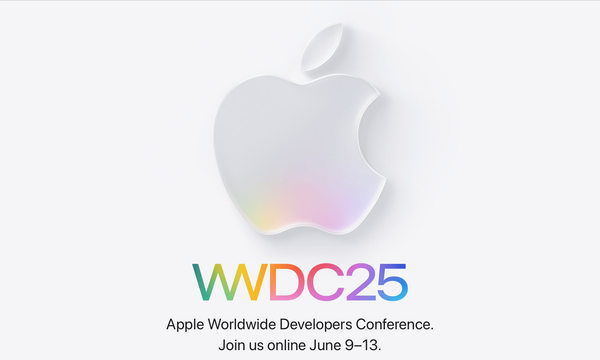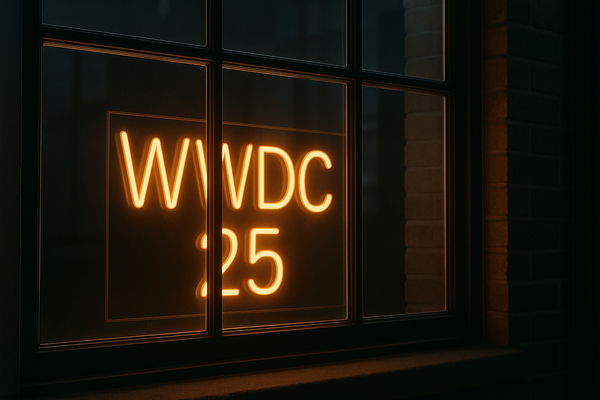Numeric Citizen Introspection Newsletter #17
My numeric life summary for the month of December of 2021. COVID-19 surge #5. NFTs. Cryptos. Apple’s App Store challenges for 2022. Space photos. Climate instabilities. #newsletter #apple #photography #privacyprotection #climatechange


Let's start with post highlights for the month coming from my Numeric Citizen Blog, my microblog, my Medium page or from my Numeric Citizen I/O blog.
Things to watch in 2022
It’s the time of the year where we set new goals, where we want to focus on new moving targets. Here are the things that I’ll be closely watching next year.
COVID is surging again at record levels
What it was like to travel to Mexico last November? Not always pretty under the sun my friends. Read my experience.
Another behind the scene look
If you’re curious to know about the tools that I use to make this blog possible, look no further than my recently published blogger workflow update. Get yourself a coffee, it’s a long ride.
I'm no longer depending on Subtack
In this article, learn why this newsletter is now hosted on Ghost, not Substack. As I said, a popular platform doesn’t make your content popular.
Let's be patient with Glass
In this short blog post, I talk about the necessity to be patient with Glass, a newcomer in the business of online photo sharing.

1️⃣ We are entering 2022 with no clear idea of what will happen to Apple and its App Store monopoly. Marco Arment wrote an interesting piece last September about what could happen to the App Store. Sideloading of apps, third-party IAP processing engines was discussed. For me, this will be something to watch next year. For now, it seems Apple is winning most battles. Will it win the war?
2️⃣ Apple is certainly slow at playing its turn when it comes to making changes to its App Store rules. An article from CNBC shows how App Store rules evolved over the years. Apparently, the App Store is run by technocrats. Don’t hold your breath too much for next year.
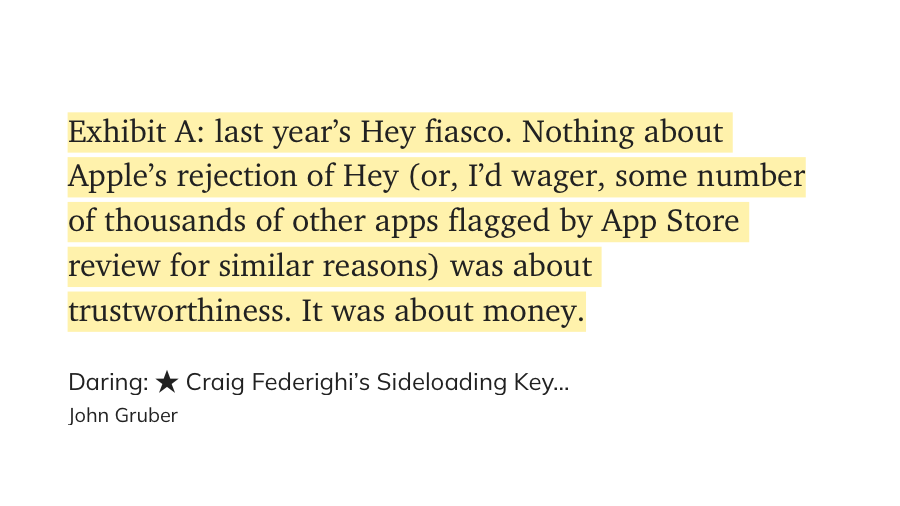
3️⃣ In 2021, Apple did make some changes to the rules. Yet, people like M.G Siegler mocks the press release where Apple announces the changes. I wonder if any of Apple's PR team is reading Mr. Siegler's article. My guess is yes.
4️⃣ Speaking of IAP (In-app purchase), see what happens with Twitter’s Super Follow. Each super follow subscription has its own IAP entry in the App Store. Ouch. This won’t scale past 10K people who offer super follow to their followers.
5️⃣ Oh, and speaking of sideloading of applications on an iPhone, don’t count on it next year or the year after. According to Apple’s Craig Federighi, sideloading capabilities would ruin the iPhone's security proposition and customers’ trust in the iPhone. Except for Riccardo Mori, sideloading would be a sign of our maturing relationship with software. To his blog post, I would answer this: we don’t need another Android platform. For those iPhone users who do want something like it (like the very few), just buy an Android phone.
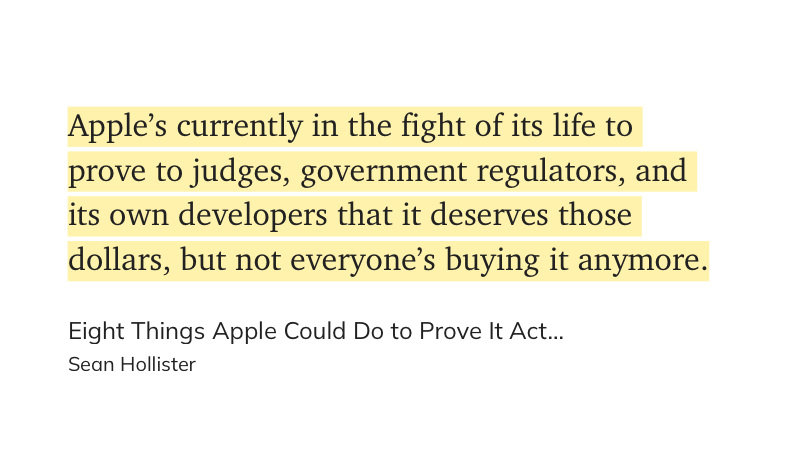
Apple’s going to have to start being a bit more proactive in coming up with a solution that regulators can look at and say ‘yes, that works for us’, because fighting this like they have been is not going to go well. If App Store is decimated instead, it will be entirely on Apple https://t.co/UenoR8Of3T
— Steve Troughton-Smith (@stroughtonsmith) July 2, 2021

Street photographers, if you’re a Twitter user who posts photos with people in them, think again before doing so in the future. Twitter’s new privacy rule prohibits posting photos on its platform without people’s explicit consent. Twitter won’t budge until the person is made aware and complains about it to Twitter. Here’s one picture I took in Cuba in 2019 which couldn’t be shared on Twitter. WTF?

Speaking of people, my preferred photo from the Unsplash recently published finalists list in their Unsplash Awards for 2021 is this one.
Now, let’s go in space for a minute. Here's how the Earth & Moon look at each other over the course of a month.
Here's how the Earth & Moon look from each other over the course of a month pic.twitter.com/TR3CMyMhF0
— Dr. James O'Donoghue (@physicsJ) December 10, 2021
Let’s stay in space and look at the best image of the sun ever taken.
Astrophotographer snaps 'clearest ever photo of the SUN' ☀️🔥
— Daily Mail Online (@MailOnline) December 6, 2021
+ Swirls and feather-type patterns can be seen alongside dark sunspots
Read more: https://t.co/Onqr93FRAA pic.twitter.com/arkGC1AjDv
Another spectacular image, the Space Station passing by the moon, from a distance. Incredible image.
The @Space_Station transiting the lunar terminator. This is the second image that got me shortlisted for the astrophotographer of the year award, and remains my favorite transit pic I’ve captured. #Astrophotography #space #opteam pic.twitter.com/FANrP8QZjF
— Andrew McCarthy (@AJamesMcCarthy) August 15, 2021
Hubble is still humming along after all those years. Here’s a picture that was taken of squabbling galactic siblings. That’s incredible. Let’s appreciate Hubble prowess while waiting for the James Webb observatory to start its journey in space. Expect the unexpected.
Finally, let’s get back to earth with these calming photos.
Can’t run forever pic.twitter.com/oN8Qwl2bDP
— breezeh (@briscoepark) November 7, 2021

As humans, we depend on climate stability for survival. What happened in BC, Canada last summer is a sign of the lack of hydrologic stability from a climate perspective, and this is happening all around the world:
“The basis upon which civilization has been built—relatively predictable weather cycles and rainfall patterns—can no longer be counted on, according to Sandford, who’s also a fellow of the Centre for Hydrology at the University of Saskatchewan.”
“That truth is that we have located our agriculture and built our communities and all associated infrastructure in places and to standards appropriate to what we thought was a relatively stable climate; climate conditions upon which we can no longer rely,” he wrote. “What should be deeply alarming to all is that climate we have taken for granted for so long is, right before our very eyes, being replaced by a climate that, unless we act now, we may not survive.”
When it comes to climate, we cannot take anything for granted anymore. Must-read article. Finally, this winter is milder than usual here in Montreal, Canada and in the US in general. Why? Part of the explanation here.
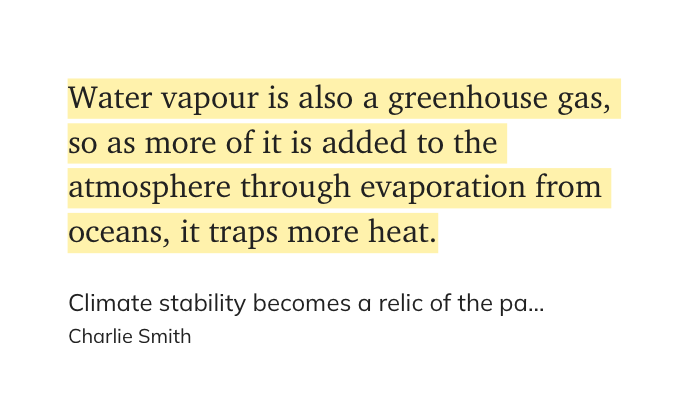

Log4j. Remember this name. It’s a software library that recently became the target of cyberattacks, thank you a zero-day vulnerability (see Log4Shell for more details). Since this library is widely used by the open-source community, it’s a major issue that will take months if not years to fix, because hundreds of millions of devices are vulnerable:
The issue is an unauthenticated remote execution vulnerability that could allow an intruder to take over an affected device.
It’s going to take “sustained effort” for organizations to become secure, with diligence needed even after applying patches from Apache
A project with a footprint like Log4j is not possible to avoid as a transient dependency even if you don’t directly import it. Log4j is a canonical logging utility for a huge ecosystem. Its current radius is beyond doing due diligence. https://t.co/FqSr68x7JL
— Jaana Dogan ヤナ ドガン (@rakyll) December 13, 2021
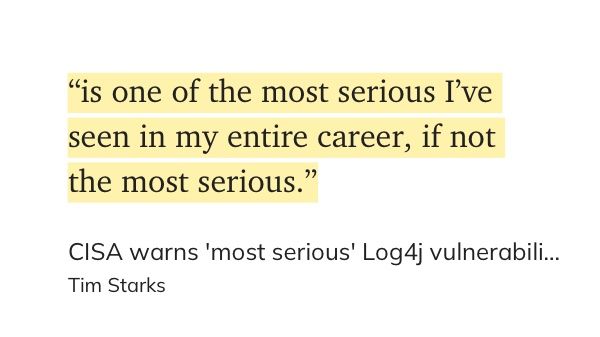
On a more positive and encouraging note, Facebook recently announced the retirement of their facial recognition system:
We are shutting down the Face Recognition system on Facebook. People who’ve opted in will no longer be automatically recognized in photos and videos and we will delete more than a billion people’s individual facial recognition templates.
At long last, one right move from Facebook. Who knew. It wasn’t enough because Facebook seems to be the worst company in America to work for.

(…) driving is about being intelligent and agile enough to deal with the imperfection of the world around you and assuming the human ability to do irrational things. — Om Malik
“The technology won’t improve” is a very basic fallacy in tech. But so is “consumers will learn how it works”. Technology advances by hiding and abstracting complexity, not by expecting normal people to learn. — Benedict Evans
“Apple is not dominant in the Indian market … Without dominance, there can be no abuse,” — Compliance Officer, Kyle Andeer of Apple.

1️⃣ Another platform introduces support for sending newsletters. This time, it’s Micro.blog. Will it fly? I think so, within the community. I upgrade my subscription plan to take advantage of this. Some people prefer to get their content from RSS feeds, others via email. I like both.
2️⃣ How do you explain to someone, what are NTFs? Well, it’s not a trivial thing to do. Here’s the start of the explanation. I think I’m getting too old for these things.
3️⃣ NFTs are based on the same digital mechanisms as cryptos. I don’t get crypto any better than NFTs. I don’t own any and I don’t plan to own any anytime soon. I love this quote from Andrew Cannon.
a crypto asset has no inherent value beyond the hope that somebody thinks it will be worth more, and so will be willing to pay more, so they can on-sell to the next chump who thinks it will also go up.
4️⃣ Cryptos are in part possible because of the vast amount of computer processing power we have at our fingertips. Here are some really cool facts about computers. Consider the distance of data as a measure of latency. Consider one CPU cycle in a computer with a 3 GHz CPU is 1 second, then fetching memory cell content would represent 3.5 to 5.5 minutes. Much more in the article.
5️⃣ Speaking of memory and getting old, consider another type of memory: human memory. Here’s an interesting article from Mike Rundle. He talks about his episodic memory is non-existent. Certainly not a cool condition to be in but fascinating, nonetheless. Is this age-related? This guy is probably much younger than me.
Oh, I almost forgot, don’t miss the following Wallpaper article: “Inside Apple Park: first look at the design team shaping the future of tech”. After reading it, take all the time it takes to study each photo. It’s a rare look inside the Apple Design Studio. John Gruber made some interesting observations.

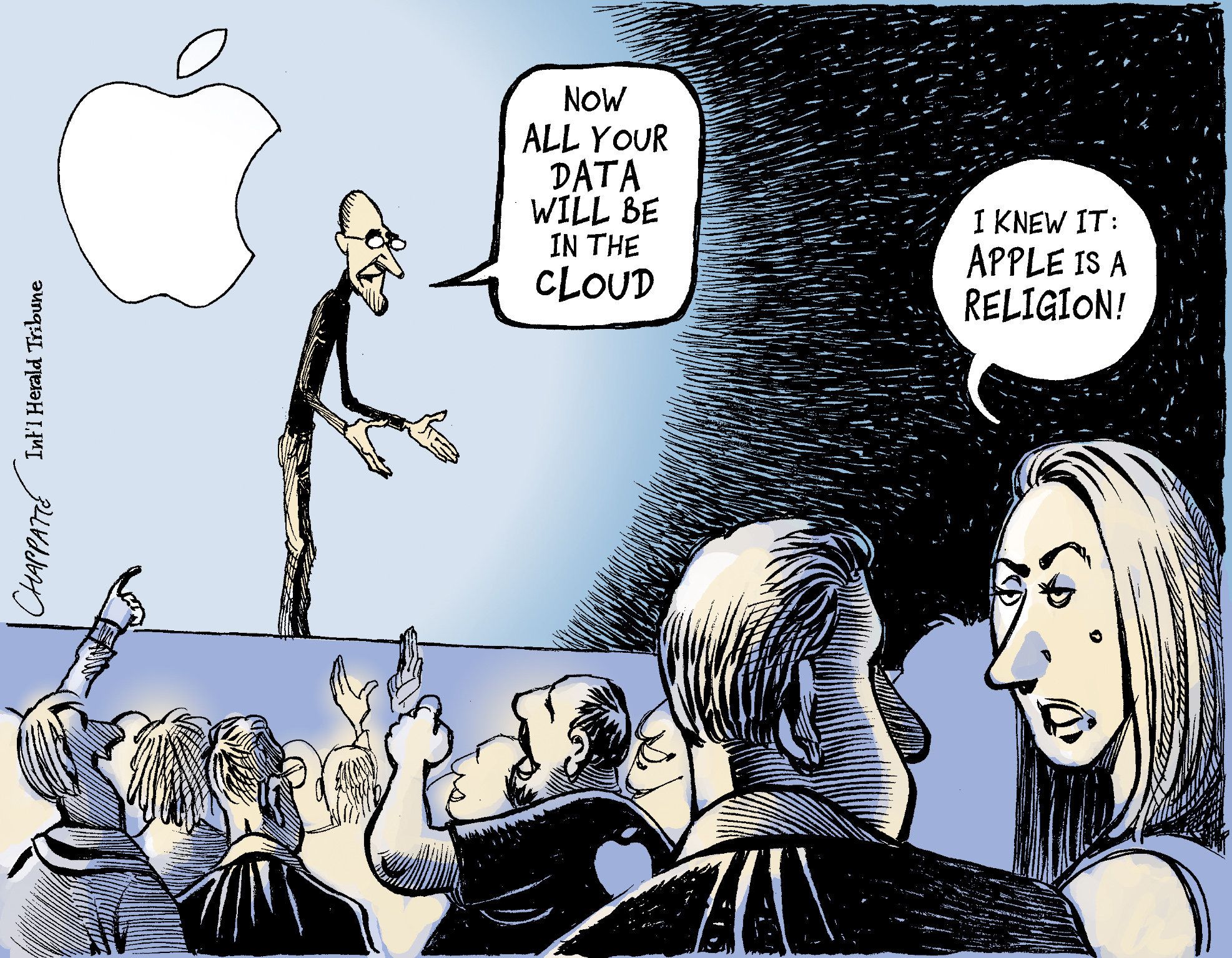
Apple is postponing return to the office, yet again. We know Apple likes to control the whole widgets when it comes to building new gizmos. When it comes to the future of work, they just can’t.
Is the next macOS version to be called “Mammoth”? According to a recent trademark renewal by Apple, this could be the case. I just don’t like the name. Monterey is nice, though.
Apple’s supply chain management is nothing less than exceptional. It has always been. It seems Apple is sailing through the worldwide disruption without too many difficulties. iPhone 13 Pro like mine has a delivery target are within a few days. Not bad.
Fascinating CT scan views of all AirPods. Best experience while using an iPhone to look at those.
Finally, want to get a peek at each version of iOS since iPhoneOS 1.0? Watch the following YouTube video. Each version is on a working iPhone device. iOS 7 remains one of the most profound changes and the one that I think I despise the most.
This concludes the Numeric Citizen Introspection Newsletter #17 for December of 2021. I wish you a happy new year! May 2022 be better than 2021!
Support my work through PayPal or by becoming a paid member here. Thanks a lot for your support. Sign up here 🙏🏻

